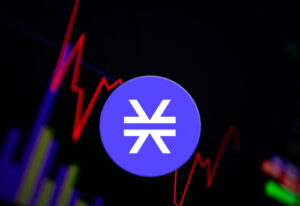Three months after a largely unnoticed pivot, the social token platform Friend.tech is now the belle of the crypto ball, surfing a wave of popularity that has sucked in celebrities and surprised its creators. Its rapid rise has some calling it a Ponzi scheme. And late Monday, the app experienced an internal identity crisis, announcing that it was changing the name of its core asset, “Shares.”
“We’ve renamed Shares to Keys,” Friend.tech posted on Twitter. “The original name was a placeholder during development, and we think Keys better illustrates their purpose as in-app items used to unlock your friends’ chatrooms.”
Staying off the radar of a certain SEC chair may have also played a part in the decision to change the name. Well on his way down a well-worn warpath against the cryptocurrency industry, Gary Gensler has labeled many digital assets as securities, and by calling their asset “Shares,” Friend.tech could have found itself in his crosshairs.
“My legal alarm bells went off when I saw that the tokens were called ‘shares,’” Orlando Cosme, founder and managing attorney at OC Advisory, told Decrypt on Telegram. “The reason for this is that an element of the Howey test is a reasonable expectation of profits.”
The Howey test is used in the United States to determine whether a transaction qualifies as the sale of an “investment contract” and would be considered a security under the Securities Act of 1933.
That prong of the Howey test is all about marketing and economic structure, Cosme explained, things that influence how a purchaser could reasonably believe that their purchase could provide them with a financial return. If a transaction passes the Howey Test, it is subject to securities regulations in the U.S.
Friend.tech launched on Coinbase’s Base scaling network for Ethereum earlier this month. The app lets users buy and sell “keys”—not “shares”—tied to their favorite Twitter accounts, providing them access to private in-app chatrooms with that user.
“By calling it ‘shares,’ a purchaser may reasonably believe that they are buying something similar to ‘stock,’” Cosme said. “So it makes sense that they changed the brand name for the term—and would have been what I would have advised a client to do.”
Like stocks, a share is a financial instrument representing ownership in a business or, in the case of Friend.tech, a person. The problem with calling its asset a share is that shares are definitely classified as a security by the U.S. Securities and Exchange Commission.
Regardless of the name change, Cosme told Decrypt he doesn’t believe the tokens on Friends.tech would be considered securities. But he said how users pitch their tokens matters.
“I think most tokens on Friend.tech wouldn’t be securities, but an account can do things in the way they promote it, how they structure their chat, and how they distribute funds to token holders that could potentially make them securities,” he said.
Stay on top of crypto news, get daily updates in your inbox.













